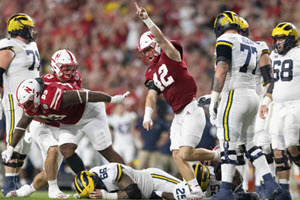 Source: flatwaterfreepress.org | Repost Duerson Fund 4/24/2023 –
Source: flatwaterfreepress.org | Repost Duerson Fund 4/24/2023 –
When Khalid Sayood and one of his students at the University of Nebraska-Lincoln set out to study concussions, they had an obvious group of people to study: the Cornhuskers football team.
To make things even simpler, a colleague who had already collected data on some football players said they could use it for their new study.
In the data – measurements of the players’ brain activity taken at the beginning of the season, and then again after some had sustained concussions – Sayood and his student hoped to find signals that would make diagnosing the brain injuries faster and cheaper.
In a paper they published about their research, they say that they succeeded, finding a way to identify the Husker football players that had concussions with over 99% accuracy.
That early success opened up tantalizing possibilities and suggested there’s a potential path to more effective diagnosis of head injuries, both in Cornhuskers and across the country.
More effective diagnosis is a big deal, because each year, there are as many as 3 million concussions from sports and recreation in the U.S., according to the University of Pittsburgh Medical Center. Roughly 300,000 come from football alone.
